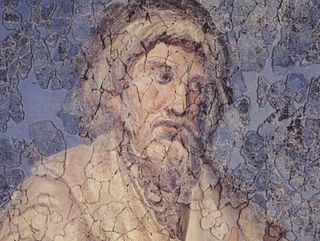A Quote by David Grinspoon
It's quite possible there's as much lightning on Venus as on Earth.
Related Quotes
There is good evidence that Venus once had liquid water and a much thinner atmosphere, similar to Earth billions of years ago. But today the surface of Venus is dry as a bone, hot enough to melt lead, there are clouds of sulfuric acid that reach a hundred miles high and the air is so thick it's like being 900 meters deep in the ocean.
The reason you see so many volcanoes on Venus is partly due to the fact that there's virtually no erosion there. So on Venus, you're seeing features, some of which are hundreds of millions of years old on the surface. On Earth, we do not see any surface features nearly that old - you only see much more recent features.
A rural Venus, Selah rises from thegold foliage of the Sixhiboux River, sweepspetals of water from her skin. At once,clouds begin to sob for such beauty.Clothing drops like leaves."No one makes poetry,my Mme.Butterfly, my Carmen, in Whylah,"I whisper. She smiles: "We'll shape it withour souls."Desire illuminates the dark manuscriptof our skin with beetles and butterflies.After the lightning and rain has ceased,after the lightning and rain of lovemakinghas ceased, Selah will dive again into thesunflower-open river.
For much of history it was possible to believe that the great diversity of life on Earth was a fixed creation, that the living world had never changed. But when the first stirrings of industry demanded that fuel be dug from the earth and hillsides be leveled for roads and railways, the Earth's true past was dug up in abundance.
My next project is 'Venus Vs,' which is a documentary that follows tennis star Venus Williams and her effort to get equal-award pay for women at Wimbledon. Most people don't realize that Venus fought for years to make sure women and men winners of that tennis championship received the same amount in award money.
































